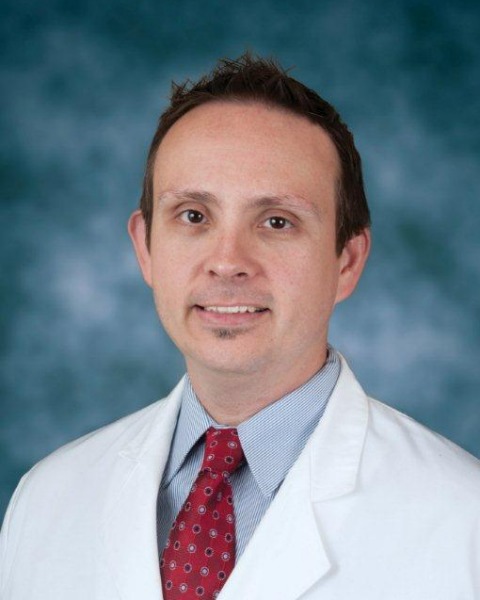Disparities in Surgical Oncologic Care
E150: Socioeconomic status predicts treatment patterns in Hispanics with pancreatic cancer

Kenneth Meredith, MD, FACS, FSSO
Chief of Surgical Oncology, Professor of Surgery
Jellison Cancer Institute, Florida State University College of Medicine, Sarasota Memorial Healthcare System
Sarasota, Florida, United States
Kenneth Meredith, MD, FACS, FSSO
Chief of Surgical Oncology, Professor of Surgery
Jellison Cancer Institute, Florida State University College of Medicine, Sarasota Memorial Healthcare System
Sarasota, Florida, United States
Kenneth Meredith, MD, FACS, FSSO
Chief of Surgical Oncology, Professor of Surgery
Jellison Cancer Institute, Florida State University College of Medicine, Sarasota Memorial Healthcare System
Sarasota, Florida, United States- JH
Jamie Huston, MS
Research
Jellison Cancer Institute, United States - RS
Ravi Shridhar, MD, PhD
Radiation Oncology
Advent Health Orlando, United States
ePoster Abstract Author(s)
Submitter(s)
Author(s)
Approximately 64,050 patients will be diagnosed with pancreatic cancer and there will be 50,550 patients who will succumb from their disease. Hispanics are the fastest-growing minority and largest ethnic group accounting for 18% of the US population. We sought to examine how socioeconomic status impacts treatment of pancreatic cancer in Hispanics. Utilizing the National Cancer Database we identified patients who underwent pancreatic resection for adenocarcinoma. We subdivided into Hispanic vs Non-Hispanic (NH) patients between 2005–2018. We then examined insurance status, household income, and residence status and correlated it to treatment status. Pearson’s Chi-square test was used to compare categorical variables. Survival analysis was estimated by the Kaplan-Meier method and associated log-rank test. Significance was considered at p-value ≤0.05. Hispanics (3,720; 5.9%) were identified among 62,984 patients with pancreatic cancer. The average age for the Hispanics was 66 years vs non-Hispanics 68 years, p< 0.001. Additionally, Hispanics were more likely to have tumor locations in the head, p< 0.001, and higher likelihood of stage IV disease, p< 0.001. There was a higher likelihood of no treatment, p< 0.001, delayed time to treatment, p=0.002, and less patients undergoing surgery, p< 0.001. Hispanics had a higher incidence of uninsured status 8.1% vs 2.4%, and Medicaid 14.5% vs 5%, p< 0.001 and p< 0.001 respectively. Additionally, Hispanics were less likely to have medicare 45.9% vs 58.1%, or have private insurance 31.2% vs 34.5%, p< 0.001, and p< 0.001. Hispanic patients were more likely to live in metro/urban areas compared to their non-Hispanic counterparts, p< 0.001. Hispanic patients more often were at the lower household incomes (< 38,000/yr) compared to non-Hispanic patients, p< 0.001. While neoadjuvant and adjuvant therapy was less often utilized in Hispanic patients, those who did undergo surgery did not demonstrate differences in R0 resections, LN’s resected, LN +, or 90-day mortality. Median overall survival in Hispanics that underwent surgery was 23.7 months with 5-year overall survival of 25% compared to 21.1 months and 19% in the non-Hispanic population, p=0.006. Hispanic patients diagnosed with pancreatic cancer will more often present with metastatic disease and often go untreated. The likely culprit is Hispanics' limited access to medical care exacerbated by their lower socioeconomic and insurance status. Further studies are needed to clarify these health disparities among Hispanics and develop programs to improve access to care.
Methods:
Results:
Conclusions:
Learning Objectives:
- Identify disparities in pancreatic cancer care among Hispanics
- Understand factors that impact access to pancreatic cancer care among Hispanics
- Evaluate outcomes for patients undergoing surgery and non-surgical treatment for pancreatic cancer.
